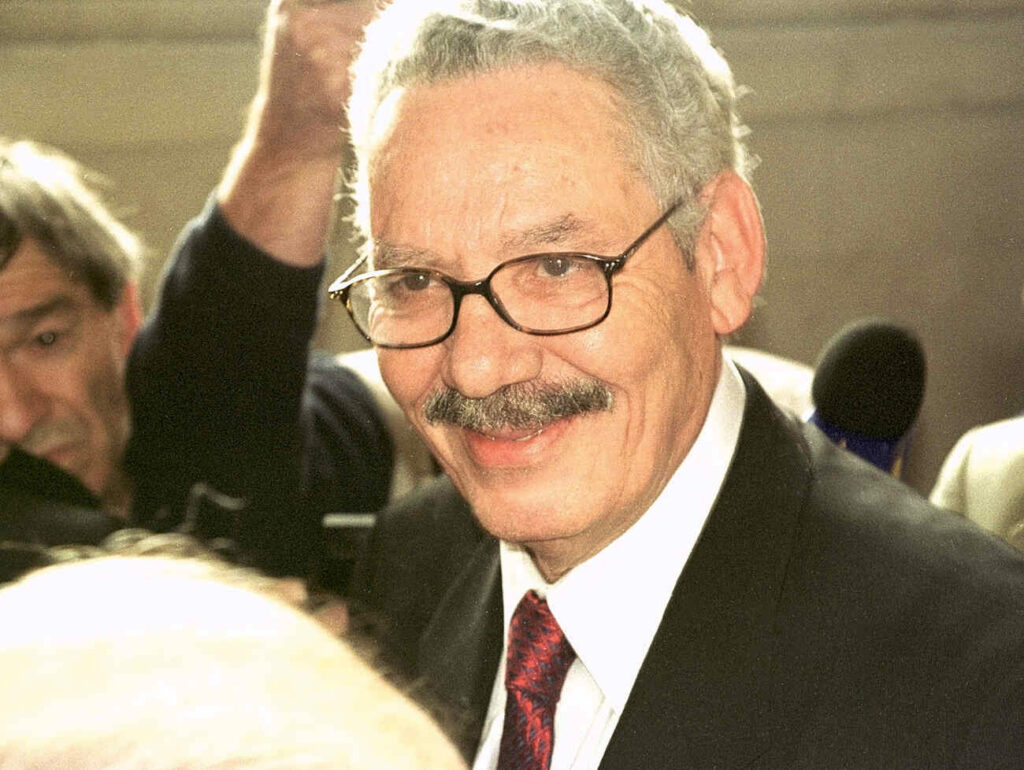Tue, Aug 29th 2023
Federal prosecutors have filed charges against former Algerian Defense Minister Khaled Nezzar with the Federal Criminal Court in Bellinzona.

He is accused of crimes against humanity between 1992 and 1994.
The crimes the minister is accused of are related to the civil war in Algeria between the government and Islamists in the 1990s, the federal prosecutor announced on Tuesday. In particular, Nezzar is said to have violated the international law of war in accordance with the Geneva Conventions and committed crimes against humanity. Nezzar had led the military junta at the beginning of this war.
According to the indictment, he knowingly and willingly at least approved, coordinated and promoted torture and “other cruel, inhuman or degrading treatment”, violations of physical and psychological integrity, arbitrary detention and sentencing and executions. His plan of action was aimed at “eradicating the Islamist opposition”.
The federal prosecutor documented eleven facts, each with several allegations, which occurred between 1992 and 1994. According to the plaintiff, she will submit her applications during the main hearing before the Federal Criminal Court in Bellinzona. The accused is presumed innocent until the final judgment.
War claimed up to 200,000 lives
The extensive investigations by the federal prosecutor’s office lasted for years. In February 2022, the agency announced that it had conducted the final interrogation with Nezzar. A total of 24 people were heard.
Information on the case was released by the Geneva-based non-governmental organization (NGO) Trial International, which fights against impunity for war crimes. According to various public sources, up to 200,000 people were killed and around 1.5 million people were driven from their homes during the civil war between 1992 and 1999, also known as “décennie noire”. Another 20,000 people are said to have disappeared.
Nezzar’s lawyers have repeatedly emphasized in the past that the former defense secretary has always denied the alleged crimes between January 1992 and January 1994. The plaintiffs would rely on unverifiable sources on the Internet. Nezzar is now also seen as an accomplice and no longer as a perpetrator.
Legal back and forth
In the more than ten years of investigations, there were numerous legal twists and turns. Trial International initiated the process by filing a criminal complaint against Nezzar in October 2011 while he was in Geneva.
After being released the next day, Nezzar had left Switzerland on promises to comply with the judiciary’s summons. The federal prosecutor’s office then decided to launch a criminal investigation into war crimes and crimes against humanity.
In 2012, Nezzar lodged a complaint against the prosecution against him, claiming that his position as Minister of Defense at the time of the crimes protected him from possible prosecution in Switzerland. However, the Federal Criminal Court dismissed the complaint on the grounds that it was impossible to invoke immunity in the case of international crimes.
Punishable regardless of the crime scene
In 2017, the federal prosecutor’s office dropped the case on the grounds that there was no armed conflict in Algeria in the early 1990s, whereupon the plaintiffs filed a complaint against the dismissal order with the Federal Criminal Court.
Finally, in 2018, the Federal Criminal Court announced its decision to overturn the Federal Public Prosecutor’s Office’s closure of the proceedings, so that they had to resume the investigation. War crimes have been punishable in Switzerland since 1968, regardless of the crime scene and the nationality of the perpetrator or the victim. Switzerland ratified the Geneva Conventions on March 31, 1950, Algeria on June 20, 1960.
Keystone/SDA©
